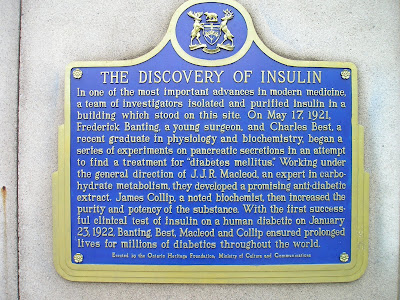
It's time for TV Ontario's second "best lecturer" contest. The top ten finalists have been selected. Their lectures will be televised beginning January 13th. Lecturers from all over the province and from many different disciplines will be featured in the run-off.
Saturday, January 13 4:00 PM (repeated Sunday at 4:00 PM)
Jacalyn Duffin, Medicine, Queen's University
Steve Joordens, Psychology, University of Toronto at Scarborough
Saturday, January 20 4:00 PM (repeated Sunday at 4:00 PM)
Kenneth Bartlett, History, University of Toronto
Michael Persinger, Psychology, Laurentian University
Saturday, January 27 4:00 PM (repeated Sunday at 4:00 PM)
Nick Mount, English, University of Toronto
Rupinder Brar, Physics, University of Ontario Institute of Technology
Saturday, February 3 4:00 PM (repeated Sunday at 4:00 PM)
Bryan Karney, Civil Engineering, University of Toronto
Marc Fournier, Psychology, University of Toronto at Scarborough
Saturday, February 10 4:00 PM (repeated Sunday at 4:00 PM)
Allan C. Hutchinson, Law, Osgoode Hall Law School
Maydianne Andrade, Biology, University of Toronto at Scarborough
This is a popularity contest. The last one was very disappointing because some of the most important aspects of being a good university lecturer were ignored.
I'm talking about accuracy and rigour. It's not good enough to just please the students. What you are saying has to be pitched at the right level and it has to be correct. Too many of the lectures were superficial, first-year introductions that offered no challenge to the students. (One, for example, was an overview of Greek and Roman architecture by an engineering Professor.) The students loved it, of course, and so did the TV producers because they could understand the material. Lecturer's in upper level courses need not apply.
Some of last year's lectures were inaccurate. The material was either misleading or false, and the concepts being taught were flawed. Neither students nor TV audiences were in any position to evaluate the material so accuracy was not a criterion in selecting the best lecturer of 2006.
I wrote to the producers about this, suggesting that the lecturers be pre-screened by experts in the discipline. TV Ontario promised to do a better job this year. I'm looking forward to seeing if they kept their promise.
 The fact that Michael Persinger is one of the finalists doesn't bode well. In case some of you don't know, Persinger is the guy who puts a motorcycle helmet full of solenoids on your head to make you become religious [This Is Your Brain on God]. Persinger used his machine to try and make Dawkins have a religious experience [God on the Brain]. It didn't work.
The fact that Michael Persinger is one of the finalists doesn't bode well. In case some of you don't know, Persinger is the guy who puts a motorcycle helmet full of solenoids on your head to make you become religious [This Is Your Brain on God]. Persinger used his machine to try and make Dawkins have a religious experience [God on the Brain]. It didn't work.
Persinger was not disheartened by Dawkins' immunity to the helmet's magnetic powers. He believes that the sensitivity of our temporal lobes to magnetism varies from person to person. People with TLE may be especially sensitive to magnetic fields; Prof Dawkins is well below average, it seems.
 Name this molecule. You must be specific. We need the exact chemical name and the common name. The chemical name isn't that hard but finding the common name and the function of the molecule is a lot more difficult.
Name this molecule. You must be specific. We need the exact chemical name and the common name. The chemical name isn't that hard but finding the common name and the function of the molecule is a lot more difficult. 













